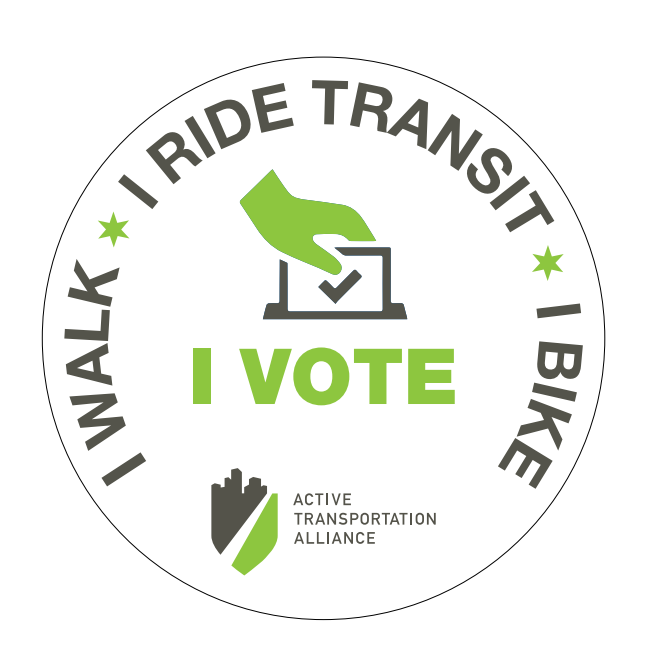Thanks to an unprecedented level of federal and state transportation funding, Illinois’ next governor and general assembly will have the ability to transform streets and trails in communities across the state.
If they are willing to confront the failing status quo, the next governor and general assembly will have the opportunity to re-orient the state’s transportation system around safety, sustainability, and racial equity.
Active Transportation Alliance’s 2022 Illinois Sustainable Transportation Platform provides a roadmap for state leaders to dramatically improve mobility over the next five years.
The platform features specific action items on three core goals:
- Elevate sustainability and racial equity in transportation decision making.
- Strengthen funding and regulations to support public transit.
- Make state roads safer for walking and biking.
The platform is based on input from Active Transportation Alliance supporters, partner organizations, board members, and staff over the past several months. We distributed a survey statewide and hosted two virtual discussions to collect a broad range of feedback and ideas.
FAILING STATUS QUO
For decades, the Illinois Department of Transportation (IDOT) has prioritized vehicle speed and free-flowing traffic above all other considerations, namely safety, public health, equity, and sustainability.
The department operates with little transparency, public accountability, or input, spending millions of dollars every year on projects that haven’t been thoroughly vetted or approved by the people whose lives they will affect.
The results of this approach have been devastating. Walking and biking are unsafe and uncomfortable on nearly all state roads while traffic crashes, serious injuries, and fatalities are on the rise — especially on state-controlled arterial roads.
Public transit systems are in crisis across the state due to dramatic declines in ridership and revenue during the pandemic. Most Illinoisans lack access to reliable bus or train service and few state roads give transit priority with features like bus-only lanes and transit-signal priority.
Transportation is the largest source of climate-warming carbon pollution in Illinois, and transportation emissions have increased in recent years. Vehicle pollution disproportionately harms people of color, contributing to poor air quality and heightened threats from climate change in many Black and Brown communities. These same communities lack reliable, sustainable transportation options.
CHARTING A NEW PATH
Active Trans and our allies across Illinois call on state leaders to establish a clear, transparent, and community-informed process for funding major transportation projects that gives priority to racial equity and climate change mitigation.
The state should halt plans to expand highways and arterial streets and fully account for the additional traffic congestion and emissions generated by these new lanes, known as induced demand.
Leaders should invest in making it safer, easier, and more affordable to use non-car alternatives with policies like
- Free transit fares for youth until age 19.
- A statewide electric bicycle purchasing incentive program that includes a larger discount for people with lower-incomes.
Among many other legislative and policy changes, the platform also calls for giving cities and towns more flexibility to reduce their default speed limits and slow down cars and trucks to safe speeds.
Sign up to receive advocacy updates throughout election season and beyond.
REGISTER TO VOTE
We’re publishing this platform to educate voters and candidates about our state-level issues and priorities. As a 501 (c) 3 not-for-profit organization, Active Transportation Alliance does not endorse candidates for public office.
The primary election for statewide offices is June 28, 2022, and the general election is November 8, 2022. Online voter registration for the primary election closes June 12, 2022, but residents can register to vote in-person up until Election Day.

